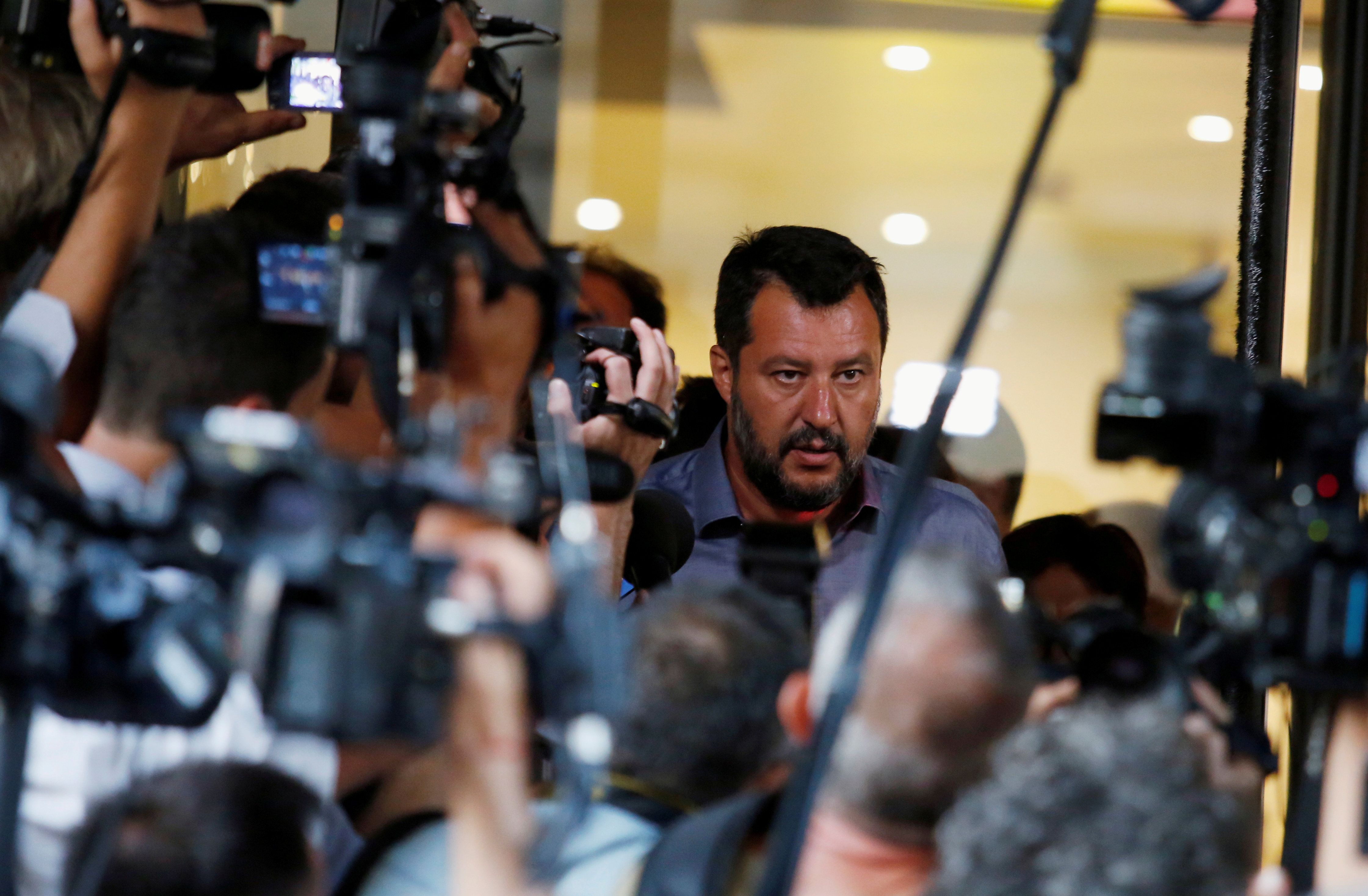August 12, 2019
Imagine: It's October 2019, and European bureaucrats are facing down a brash leader who has promised to bring Brussels to heel. No, not Boris Johnson, who appears increasingly determined to take the UK out of the EU on October 31. I'm talking about Matteo Salvini.
Italy's right-wing interior minister plunged the country's government into turmoil on Friday by demanding a no-confidence vote in Europe's third-biggest economy. It's the beginning of the end for the uneasy, 14-month-old governing coalition between his right-wing Lega party and the anti-establishment 5-Star Movement. Salvini visited a string of Italian beaches in his swim trunks over the weekend to take his case to Italian voters. Parliamentarians have been summoned back from summer holidays; the Italian senate is due to meet today to decide on a date for a no-confidence vote, which could take place as soon as tomorrow.
An anti-immigration crusader who has risked sanctions by pushing ahead with big tax cuts that would break the EU's budget rules, Salvini is gambling that an early vote will allow Lega to consolidate its growing popularity in Italy and install him as prime minister. His chances look decent: One recent poll put Lega's support in Italy at 36 percent, double that of 5-Star, and also comfortably ahead of the more mainstream center-left Democratic Party (PD). Rules that give any party or group of parties that win 40 percent of the votes in a national election in Italy a "bonus" allotment of seats could allow Salvini to form a government without former prime minister Silvio Berlusconi and his Forza Italia party, instead relying on the smaller Brothers of Italy party, which Salvini much prefers. Investors reacted nervously on Monday to the prospect of a budgetary showdown between an emboldened Salvini and the EU.
The gambit could backfire. Parties seen as breaking up a government tend to suffer in subsequent polls in Italy. Matteo Renzi, the former PD prime minister, has suggested banding together with rival factions to block a Lega takeover. Lega is also facing an unfolding scandal about top party aides' attempts to solicit funding from Russia ahead of European elections this past May that could complicate citizens' choices in a new poll.
But if Salvini and Lega win, it could embolden a politician whose rants against immigrants and Brussels have resonated with Italian voters fed up with traditional political parties. For the EU this autumn, the biggest source of political turmoil may not be a charismatic politician who wants to take his country out of the bloc, but one who wants to stay in and wreak political havoc.
More For You
Mastercard Economic Institute's Outlook 2026 explores the forces redefining global business. Tariffs, technology, and transformation define an adaptive economy for the year ahead. Expect moderate growth amid easing inflation, evolving fiscal policies, and rapid AI adoption, driving productivity. Digital transformation for SMEs and shifts in trade and consumer behavior will shape strategies worldwide. Stay ahead with insights to help navigate complexity and seize emerging opportunities. Learn more here.
Most Popular
- YouTube
Despite a ceasefire in Gaza, Israel is still not letting foreign journalists in to independently verify what’s happening on the ground, CNN’s Clarissa Ward tells Ian Bremmer on GZERO World.
- YouTube
On Ask Ian, Ian Bremmer breaks down the steady escalation of US pressure on Venezuela and why direct military action is now a real possibility.
US President Donald Trump arrives to announce reciprocal tariffs against US trading partners in the Rose Garden of the White House in Washington, DC, USA, on April 2, 2025.
POOL via CNP/INSTARimages.com
From civil conflicts to trade wars to the rise of new technologies, GZERO runs through the stories that have shaped this year in geopolitics.
© 2025 GZERO Media. All Rights Reserved | A Eurasia Group media company.
